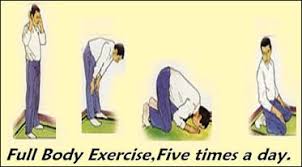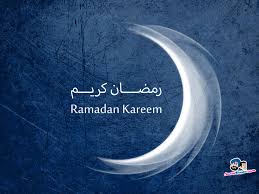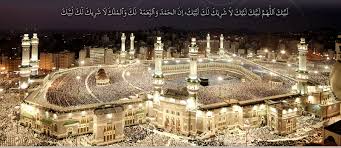THE FIVE PILLARS OF ISLAM
The five pillars (Arkaan al - Islam) are five basic precepts of Islamic law and constitute the core of the Islamic doctrine. They are based on the Koran and the (sunna) or tradition, where refers to the statements of Muhammad throughout his life.They are: The profession of faith( Shahada),prayer (Salat) , alms (Zakat), fasting( Ramadan) and the pilgrimage to Mecca (Hajj).
The profession of faith (Shahada).
 The shahada or profession of faith is the first and most important of the pillars of islam. Condenses the essentials of the Islamic doctrine in a brief phrase ( اشهد أَنَّ لا إله إلا ألله وأَن محمدا رسول الله ) Lā ' ilāha ' illā-llāhu Muhammad rasūlu-llāh-) and whose translation into the imgles is usually "there is no God but Allah and Muhammad is his Prophet"
The shahada or profession of faith is the first and most important of the pillars of islam. Condenses the essentials of the Islamic doctrine in a brief phrase ( اشهد أَنَّ لا إله إلا ألله وأَن محمدا رسول الله ) Lā ' ilāha ' illā-llāhu Muhammad rasūlu-llāh-) and whose translation into the imgles is usually "there is no God but Allah and Muhammad is his Prophet"
The oneness of God is expressed ritually in the communal prayer, that all Muslims should observe, praying in the same direction: toward the Kaaba, God's first House.
Prayer marks the rhythm of the day, rising thought God: reza at dawn, mid-afternoon, when the Sun and before midnight.
 Before the time of the prayer the muezzin calls prayer from the top of the Minaret, but now has been replaced by speakers and recordings. The call to prayer says: "sum is the greatness of God. I bear witness that there is no other God than God. I bear witness that Muhammad is the Prophet of God. Come to prayer! Come to salvation! Prayer is better than sleep. Sum is the greatness of God. There is no other God than God".
Before the time of the prayer the muezzin calls prayer from the top of the Minaret, but now has been replaced by speakers and recordings. The call to prayer says: "sum is the greatness of God. I bear witness that there is no other God than God. I bear witness that Muhammad is the Prophet of God. Come to prayer! Come to salvation! Prayer is better than sleep. Sum is the greatness of God. There is no other God than God".

From the call of the muezzin, Muslims begin the ablutions that precede prayer, placed in rows and under the guidance of the Imam, recite verses from the Koran and making ritual inclinations. Then they are on their knees with the front supported on the ground as a sign of submission to God, this ritual can be repeated up to four times . It can be done anywhere, alone or accompanied, but community prayer has more value than what makes solo. On Friday, holiday for Muslims, is required to go in the morning to the mosque for prayer in common, which shall be accompanied by a sermon by the imam; other days is only recommended.
The original meaning of the word Zakat is 'purification' and 'growth'. Giving Zakat means "give a percentage specified on certain properties to certain kinds of people in need". The percentage, which is made compulsory sobe gold, silver and cash that has reached the amount (or the equivalent in cash in the case of cash) approximately 85 grams of gold and that it has not been used in the course of a lunar year, is 2.5 percent. Our possessions are purified to reserve a small portion of our income for the needy.
 During the month of Ramadan, the ninth month of the Islamic year, the Muslim must refrain from eat, drink, smoke , perfume and having sex from dawn to dusk . The fast is broken each evening with a date , a pinch of salt and a drink of water. These prohibitions are raised at night . Breaking the fast Supper is a sign of fraternity.
During the month of Ramadan, the ninth month of the Islamic year, the Muslim must refrain from eat, drink, smoke , perfume and having sex from dawn to dusk . The fast is broken each evening with a date , a pinch of salt and a drink of water. These prohibitions are raised at night . Breaking the fast Supper is a sign of fraternity.
This month changed the pace of life, and more time is dedicated to reflection, human relations, solidarity, celebrations.
Fasting begins with a feast of preparation, the "night of forgiveness", in which Muslims forget mutual offenses and are reconciled. Towards the end of the month to celebrate the "night of power", in which commemorates the revelation of the Qur'aan and the beginning of the Mission of the Prophet Muhammad. But that stands out most is the feast of the end of the fast, held all joyous, wearing their best suits, preparing delicacies, decorating the houses and streets, visiting friends, making gifts.
- Pilgrimage to Mecca (Hajj)
Going to Mecca at least once in life, permitting the media and forces. The woman is also obliged, but need the permission of the husband or protector and must also be accompanied by one of them. Can be performed in two ways: as Umrah (visit), at any time of the year; or as hadj, which must be made during the month Dhul al - Hijja.
 The pilgrimage to Mecca, as hajj , is an important event for all Muslim believer, that takes place the last month of the Islamic year and that brings together more than one million Muslims. The pilgrims flock from all over, wearing a white djellaba that consists of two parts, which symbolizes the attitude of purification and suppresses all difference of race and social status. This is done between days 7 and 13 of the last month of the Arabic calendar called Dhul al - Hijja. It unifies all the Muslims of the world and symbolizes the return to its origins . They go on a pilgrimage to purify and stay clean of sin, at birth.
The pilgrimage to Mecca, as hajj , is an important event for all Muslim believer, that takes place the last month of the Islamic year and that brings together more than one million Muslims. The pilgrims flock from all over, wearing a white djellaba that consists of two parts, which symbolizes the attitude of purification and suppresses all difference of race and social status. This is done between days 7 and 13 of the last month of the Arabic calendar called Dhul al - Hijja. It unifies all the Muslims of the world and symbolizes the return to its origins . They go on a pilgrimage to purify and stay clean of sin, at birth.
Very interesting. The best way of fighting against stereotypes is information, education and culture.
ResponderEliminar